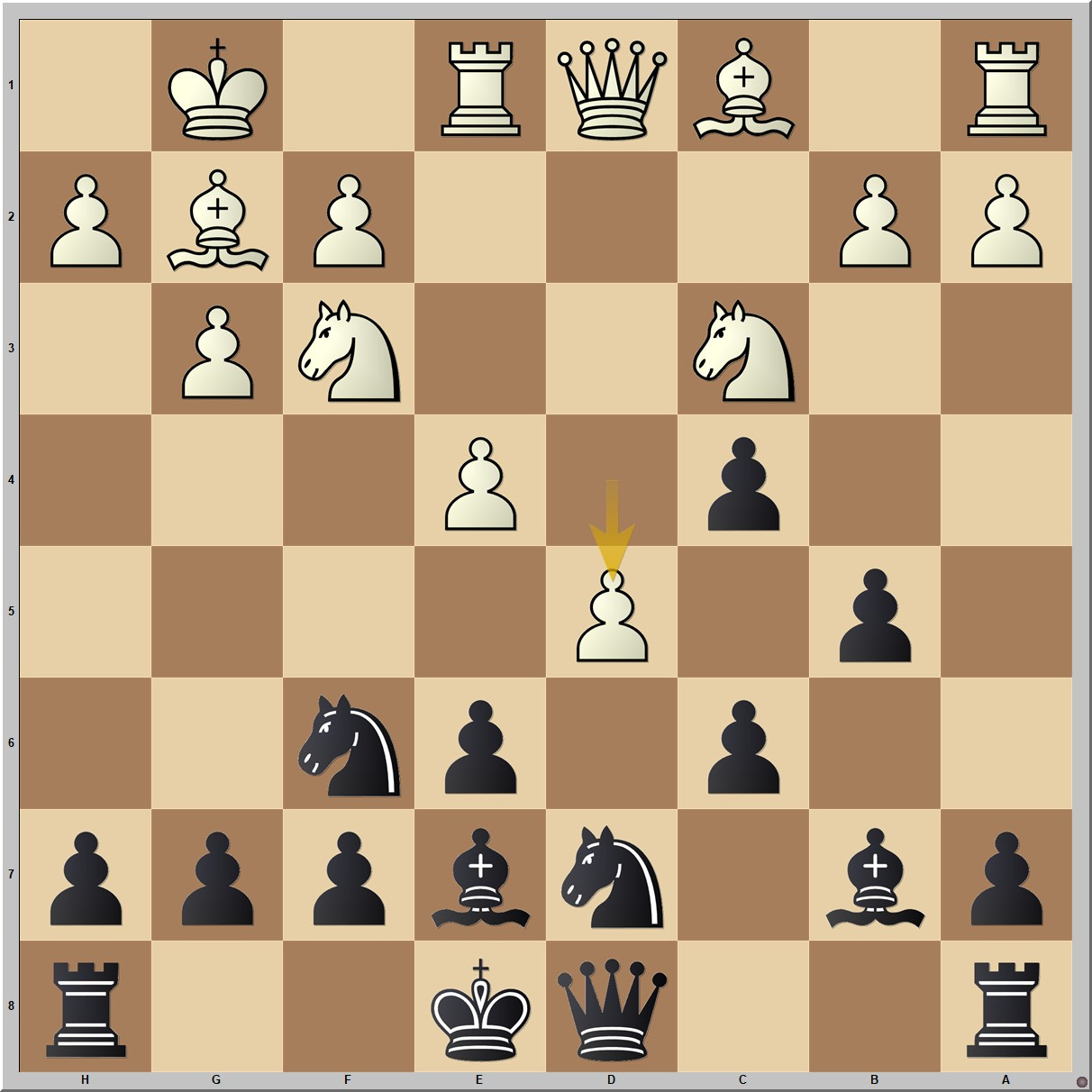Boring Calculation Wins Games
Here’s a position I faced at the ALTO tournament a couple weeks ago. My opponent has just thrust the d-pawn into my territory. How would you react?
Here’s a rough approximation of my thought process:
I definitely want to take that pawn. If I let it stay alive in my territory, I have to consider all sorts of possibilities like dxe6, d6, and dxc6. So I’ll only consider a move like b4 if I can’t make either of the captures work. My primary candidates are exd5 and cxd5.
I don’t like that exd5 opens the e-file with White’s rook lined up with my king. After something like exd5 exd5 cxd5 Qe2, it’s difficult for me to castle. Maybe this is still good for me, but it looks kind of hairy.
What about cxd5? It looks like cxd5 exd5 Nxd5 Nxb5 is forced. It’s annoying that I had to break up my queenside pawns, but I’m still up a pawn, my pieces are well-placed, and I’m ready to castle. The c4 pawn could be weak, but it’s not so easy for White to win it, and even if they somehow did, I wouldn’t be worse (that’s the extra pawn).
Are there any alternatives for White? Not really. After cxd5…
Nxb5 Nxe4 leaves me up two pawns with a powerful central pawn chain
e5 Ne4 again leaves me up two pawns. White could take one back with Nxb5, but I’d still be up a pawn with that great pawn chain.
So it seems like cxd5 leads to a good position with an extra pawn via a simple, forcing line that my opponent cannot avoid. That’s what I’ll go with.
I probably wouldn’t have given any more thought to this decision, but after the game, my opponent mentioned that he didn’t consider cxd5 seriously when playing d5. This was surprising to me, since I considered cxd5 the most logical move, but unfortunately we didn’t have the chance to discuss it further.
This did, however, prompt me to show the position to a few students. So far, less than 50% of the students I’ve shown this position to (mostly in the 1600-2000 range) chose the best move.
This surprised me, but it squares with another observation I’ve made recently: Many of my students solve puzzles regularly and do pretty well on them, but struggle to calculate accurately in their own games, or in ordinary positions I show them. I think this is because most puzzle books focus on a very specific type of position where there is a forced win. These are important to get right, but it’s just one narrow kind of problem, out of the many we face in real games. (I wrote much more about this for my next column in New in Chess.)
I’m coming to believe more and more that most chess games are decided by these kinds of little decisions. Calculating a few short lines, evaluating the positions, and choosing the best option. Most of these decisions aren’t flash – they won’t wind up in puzzle books – but they’ll determine if you win or lose your games.
What do we do with that? I’m not sure, but one thing I’m doing as a coach is to move away from puzzles and towards problems. That is, I’m focused less on puzzles of the “White to play and win” variety, and more on positions that my students struggled with in their games. Often, these struggles have more to do with psychology or thought process than chess knowledge. But I figure if the position was difficult for one player, it will probably be difficult for others as well.
PS: I eventually used my extra pawn to win the game. You can see the full game here:




Great column on a great topic, with a great, memorable, slogan ("Boring calculation wins games").
What we need is a book with such "ordinary" game positions, where the task is to calculate a few short lines and then decide what to do. I, like most students, find these kinds of calculations difficult. Part of the problem is evaluation, but part of the problem is that when there is not a clear goal (mate or win material), it's hard to choose candidate moves for both sides. Sharing your thought process is helpful, and if that kind of description went in your future book, that would be very helpful. This kind of thought process can be trained (right?), so seeing good examples of it and then practising on your own with well-chosen exercises ought to be a good way to train.
Interesting! Without calculation I thought cxd5 was the most logical - exd5 opens the e-file where white has a rook and we have our king; cxd5 increases the scope of our bishop. Even if we lose b5 we win a pawn in the center which should make up for it. Honestly I’m surprised that not more people find this move natural. I’ll ask my coach what he thinks.